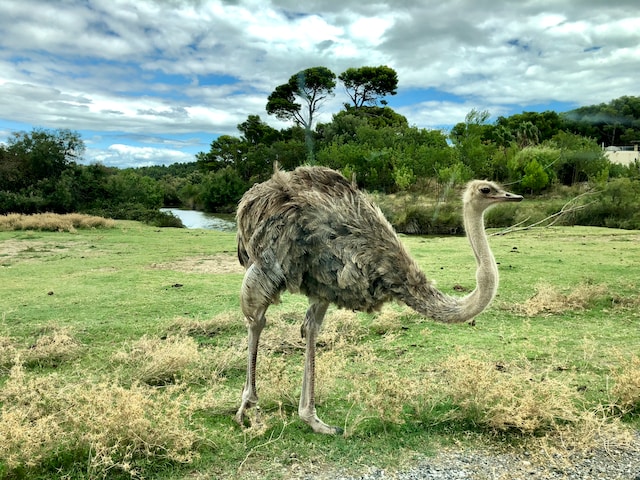Ostrich farming, once a niche industry, is now gaining momentum as an exceptional venture with a multitude of benefits. Beyond their majestic appearance and intriguing behavior, ostriches offer a myriad of lucrative opportunities, ranging from their prized meat and eggs to their valuable leather. In this article, we explore the advantages of ostrich farming, shedding light on the immense potential it holds for farmers and consumers alike.
[Body]- Nutritious and Lean Meat:
Ostrich meat is garnering attention as a healthy and flavorful alternative to traditional meats. Renowned for its tenderness and delicate taste, ostrich meat is exceptionally low in fat and cholesterol while being rich in protein. Health-conscious consumers are increasingly turning to ostrich meat as part of their balanced diets, appreciating its nutritional value and lean characteristics. Ostrich meat can be used in a variety of culinary preparations, from steaks and burgers to sausages and stews.
- Versatile and Gourmet Eggs:
Ostrich eggs, with their distinct appearance and remarkable size, have become sought-after delicacies in the culinary world. The equivalent of about 24 chicken eggs, a single ostrich egg offers a unique opportunity to create impressive gourmet dishes. Their rich and creamy texture, coupled with a delicate flavor, makes them a favorite among chefs and culinary enthusiasts alike. Ostrich eggs can be used in baking, omelets, quiches, and other creative culinary endeavors, elevating the dining experience to new heights.
- Valuable and Durable Leather:
Ostrich leather is a prized material known for its distinct pattern, durability, and luxurious appeal. With its unique texture and natural shine, ostrich leather is highly valued in the fashion industry, particularly for the production of high-end accessories such as bags, wallets, belts, and shoes. The leather’s durability and resistance to cracking make it an excellent choice for luxury items that withstand the test of time. Ostrich farming offers the opportunity to contribute to the global demand for this exclusive and valuable material.
- Sustainable and Efficient Farming:
Ostrich farming boasts several ecological advantages, making it an environmentally sustainable choice. Compared to traditional livestock farming, ostriches require less land, water, and feed, thereby reducing the overall ecological footprint. Ostriches are highly efficient converters of food to meat, as they can produce more edible meat per unit of food consumed compared to other animals. This efficiency, coupled with their ability to thrive in various climates, presents an appealing option for farmers seeking sustainable and profitable agricultural practices.
- Economic Opportunities:
The economic potential of ostrich farming extends beyond the direct sale of meat, eggs, and leather. Ostrich farms can become tourist attractions, offering educational tours and experiences for visitors eager to learn about these magnificent birds. Additionally, the value chain associated with ostrich farming generates employment opportunities, supporting local communities and contributing to regional economic growth.
[Conclusion]Ostrich farming represents a world of possibilities, where the pursuit of both economic prosperity and sustainable practices align. From the nutritious and lean meat that caters to health-conscious consumers, to the versatile and gourmet eggs that captivate culinary enthusiasts, and the valuable and durable leather that finds its place in the realm of luxury, the benefits of ostrich farming are diverse and enticing.
As consumer preferences continue to evolve, ostrich products have emerged as a distinctive choice that blends health, taste, and luxury.










